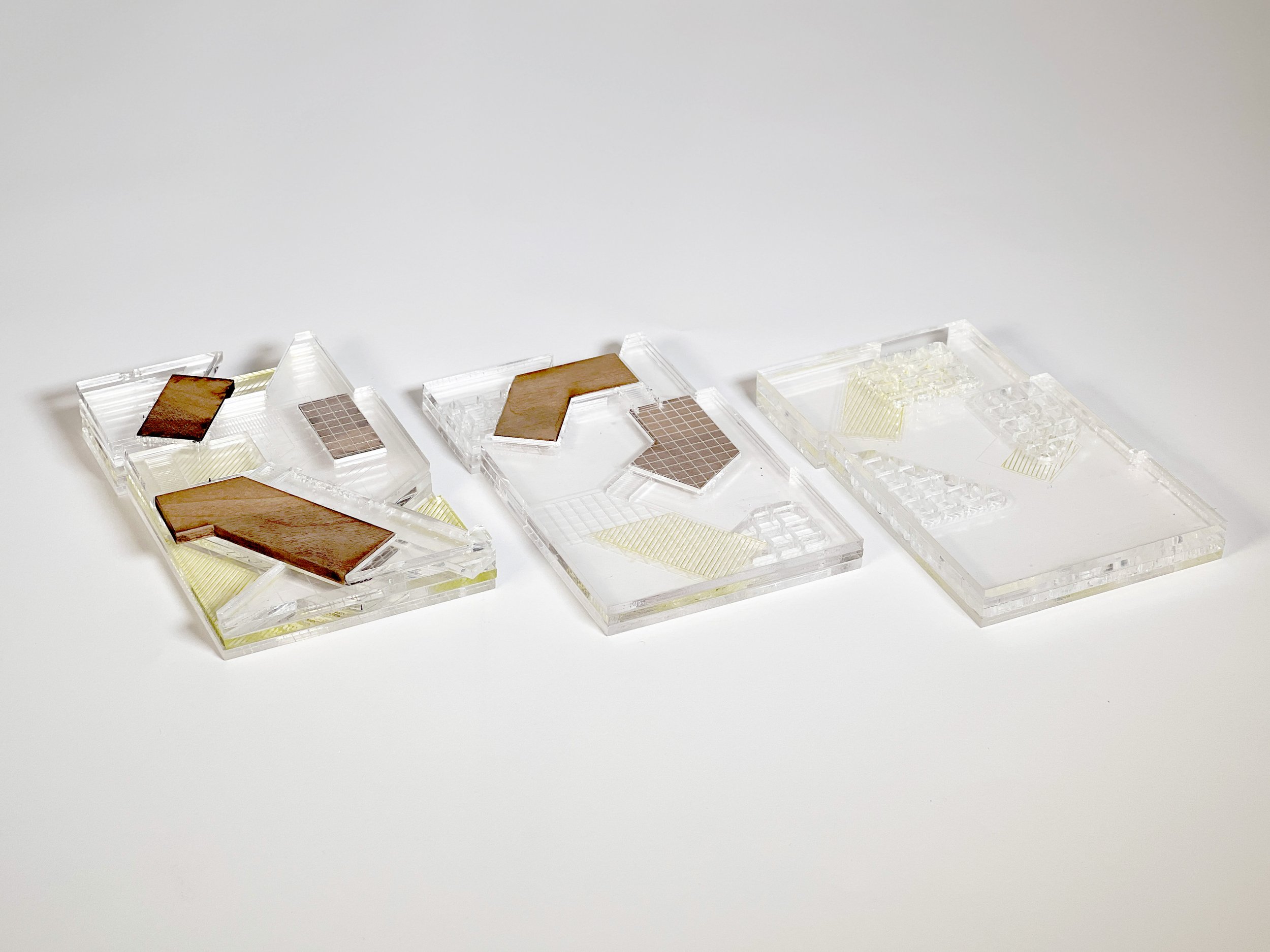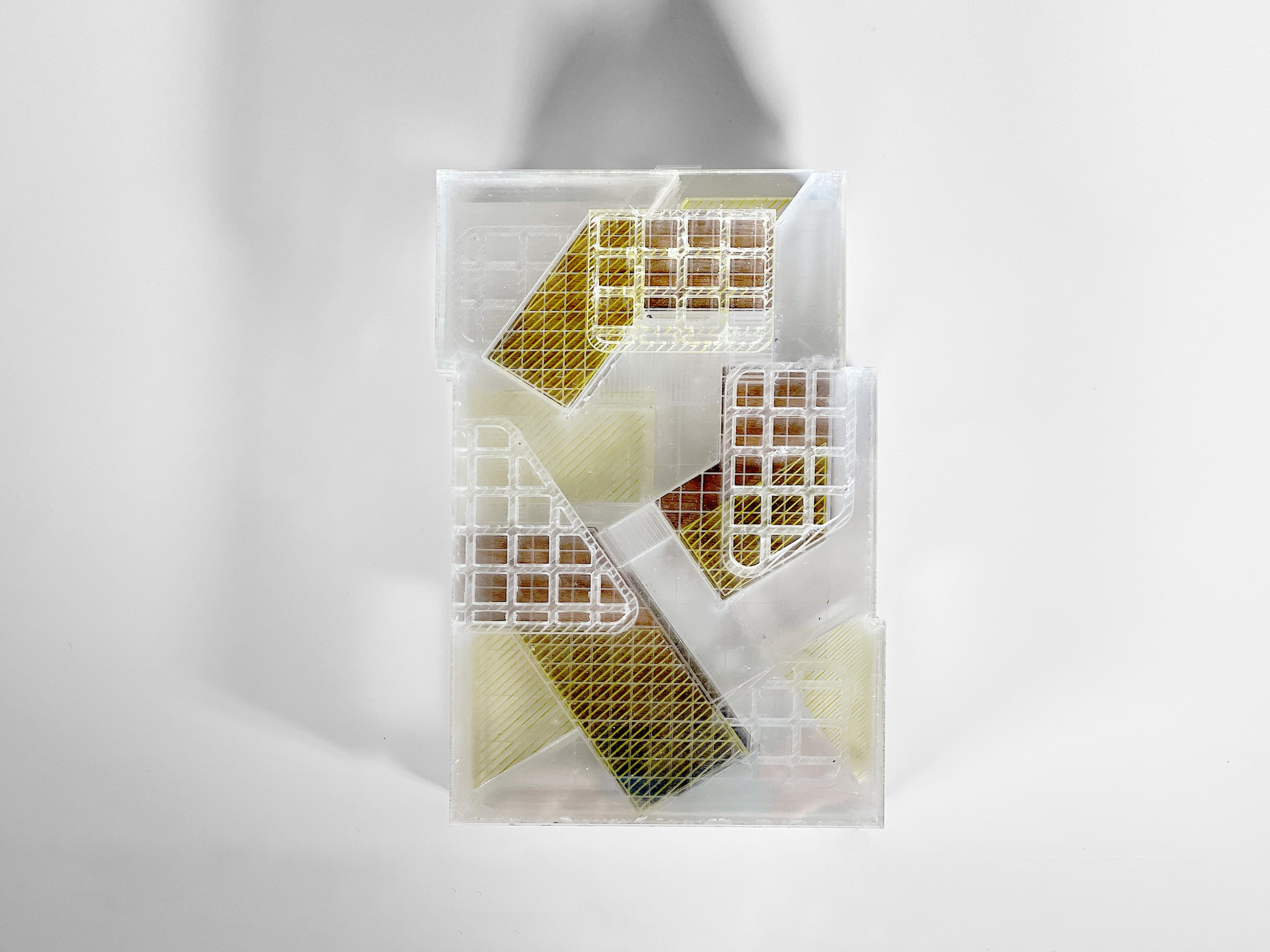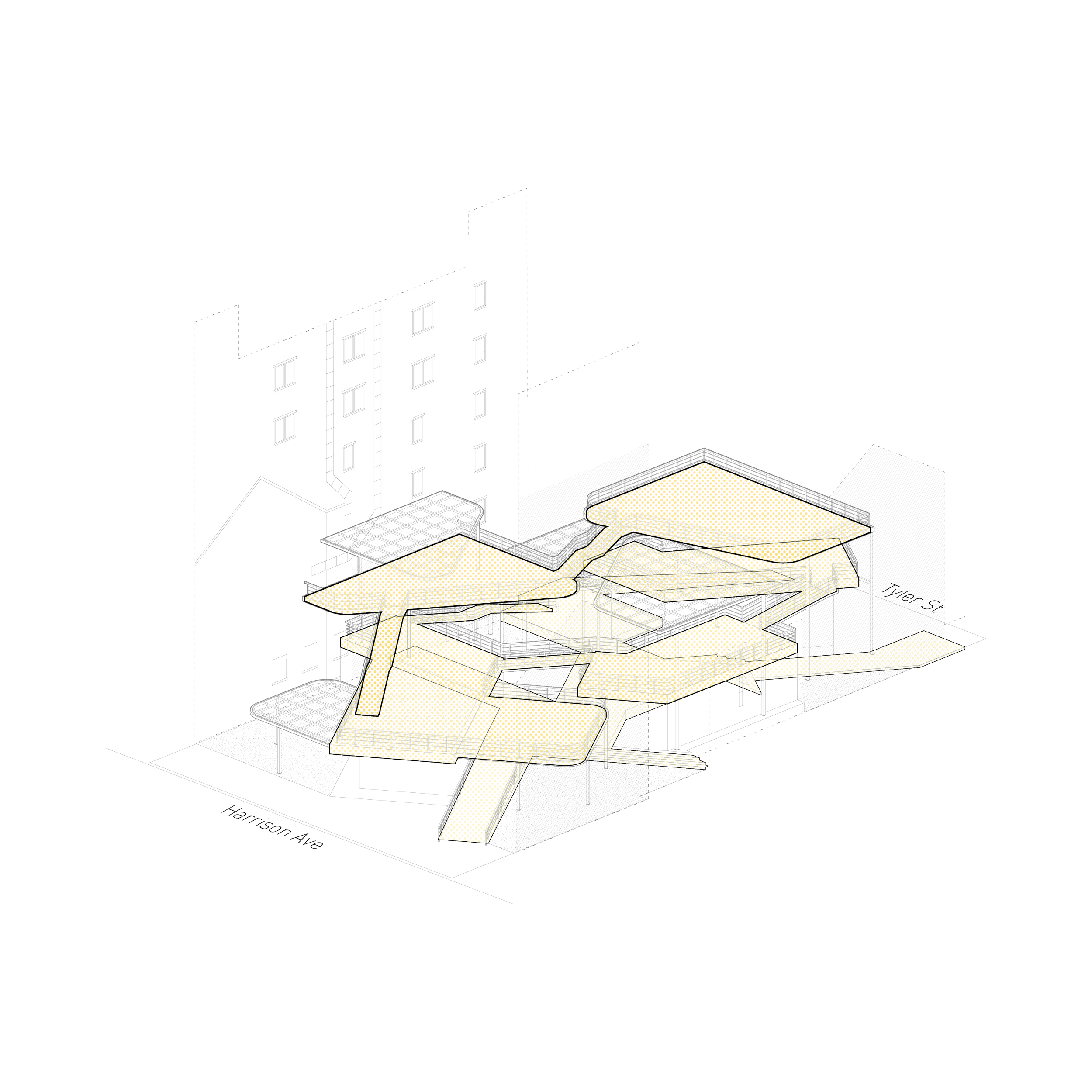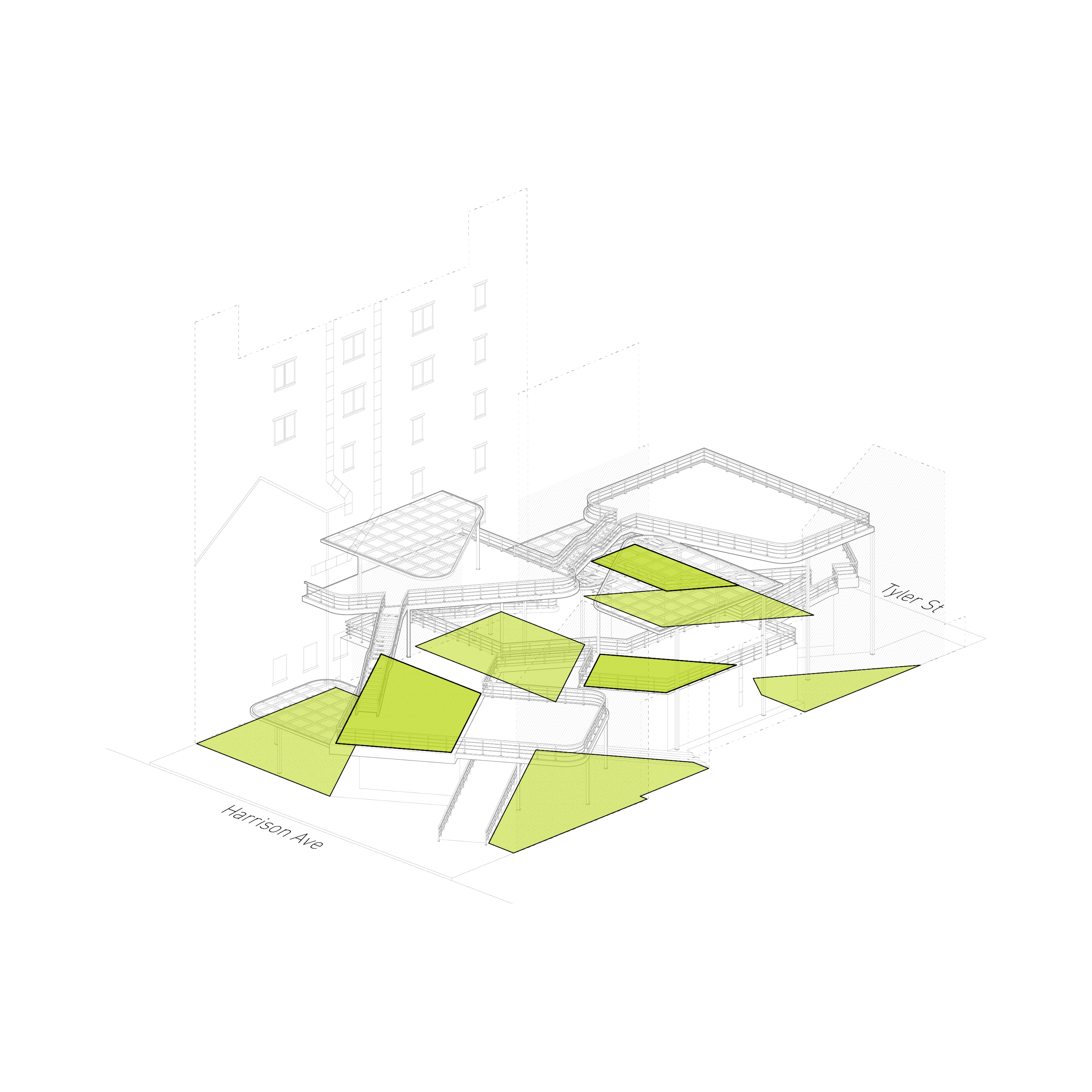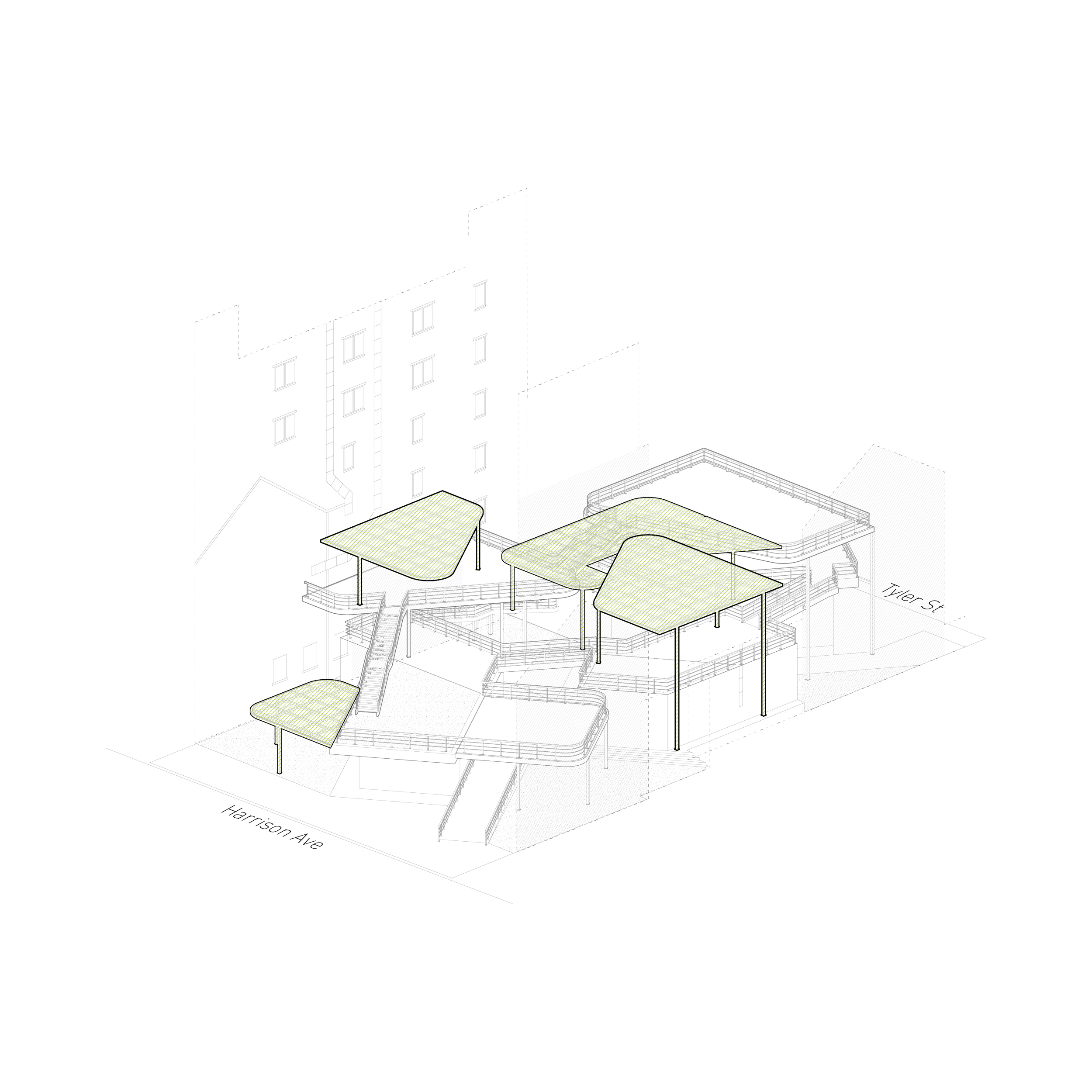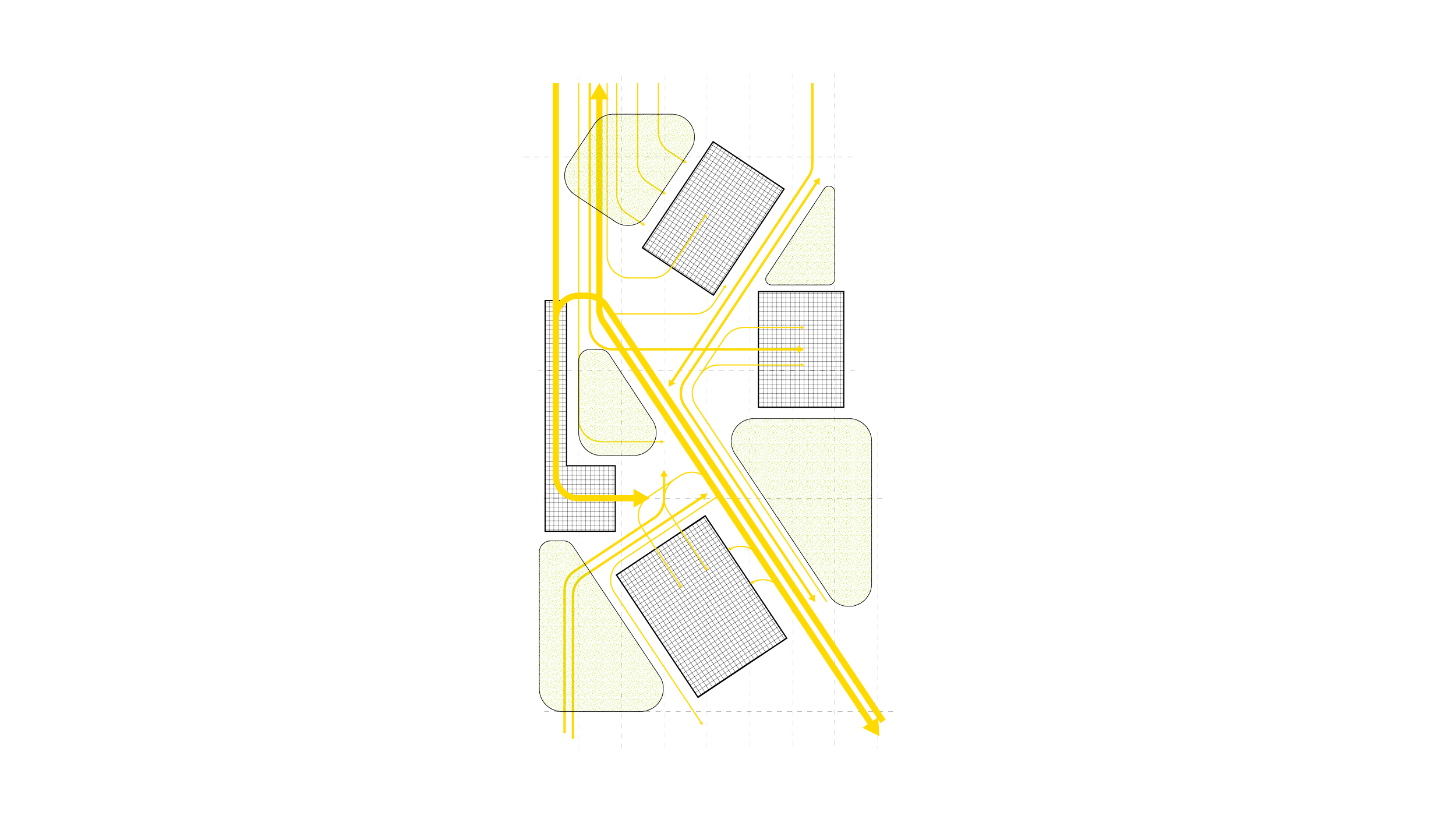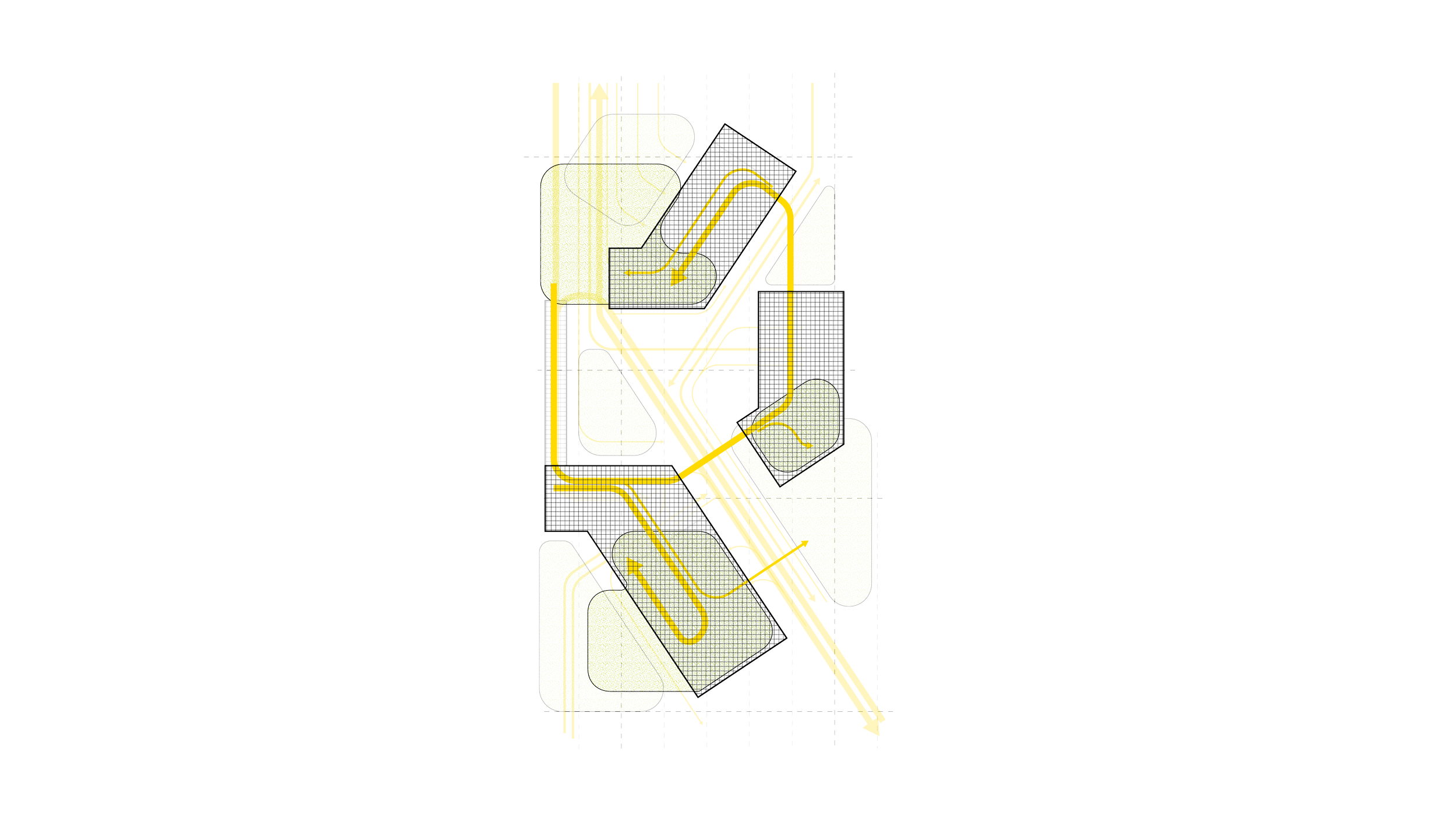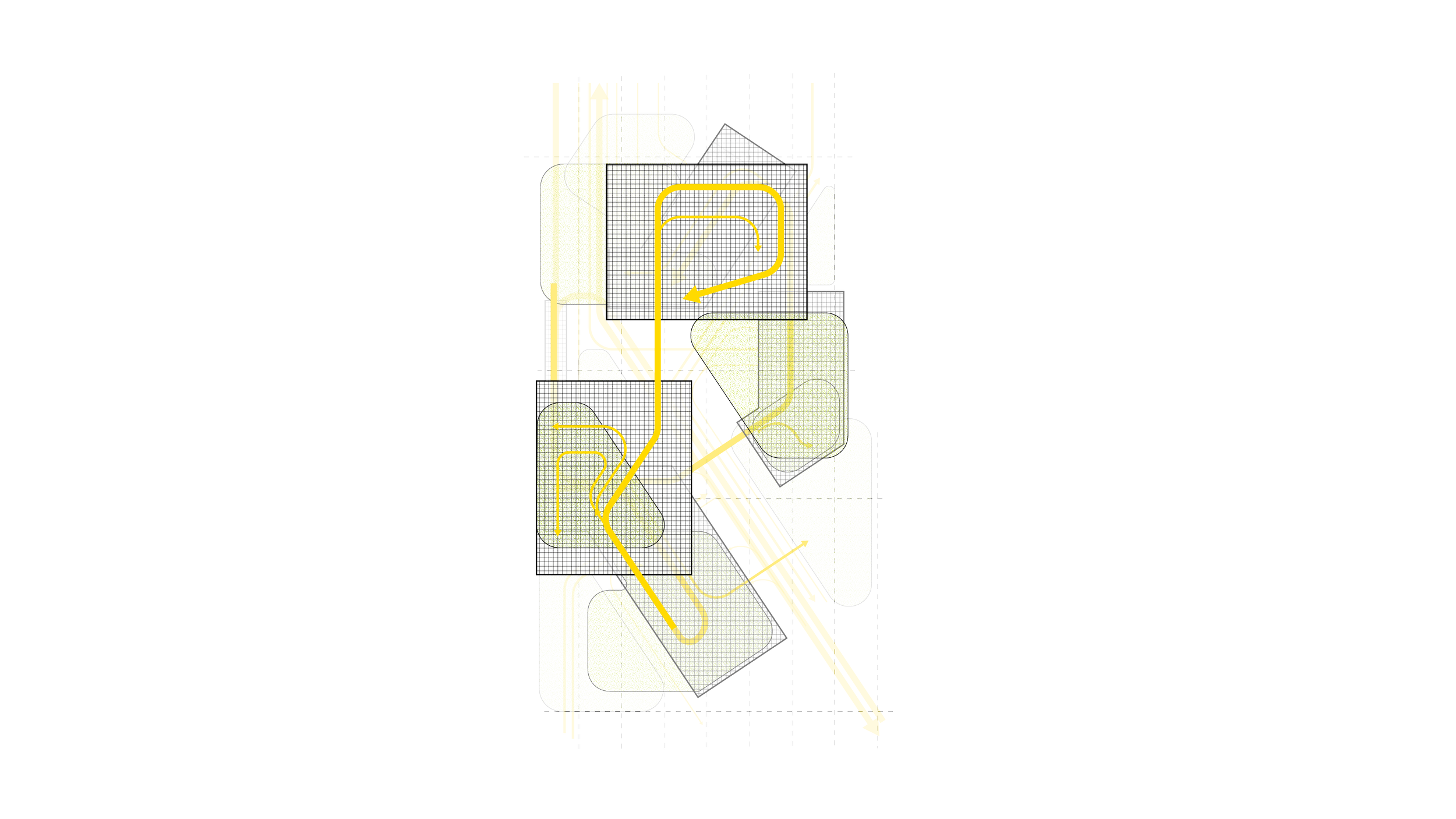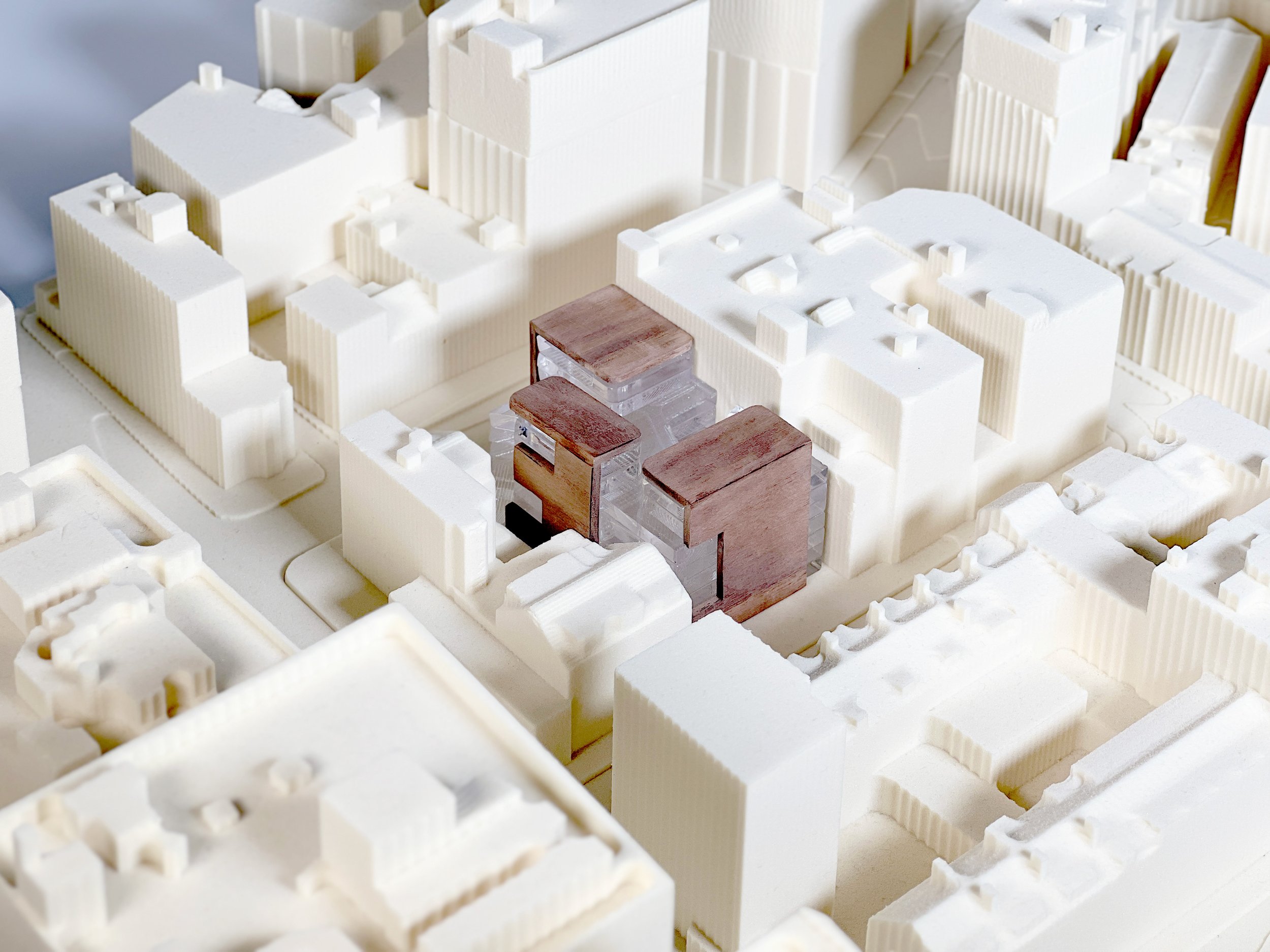
Chinatowns across the United States function as essential gathering places for new immigrants and attractions for tourists, yet they also represent a complex history of America’s discriminatory treatment against immigrants, which results in the redefinition of the neighborhoods due to urban renewal plans across the states. Boston Chinatown suffers from the consequences of these plans, which produced multiple concerns, such as housing, public safety, and lack of green spaces. These issues amalgamate into the eroding cultural identity of the neighborhood due to the decreasing sense of belonging. The project looks into these issues and rethinks identity creation as a mode of resistance for marginalized communities from the scale of the body, neighborhood, and community through the means of food.
The program of the project is a place to gather and dine, taking precedence from Singapore’s Hawker Center, where multiple stalls of individual home-owned restaurants serve food under a structure. The mass hosts the kitchens for the food hub on the ground level. The dining area happens both on the plaza and on the rooftop of these masses. The floating garden becomes trellises as the medium for climbing vegetation to grow, provides shading, and introduces another datum for the second garden.


